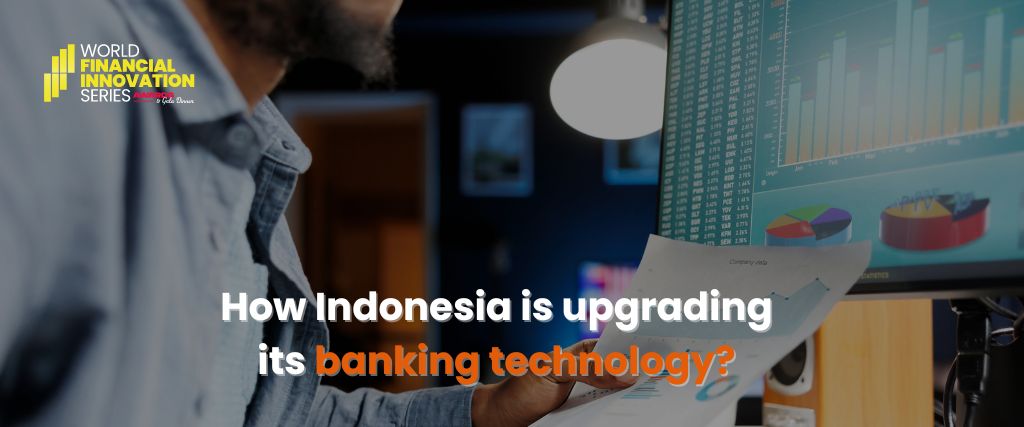How Indonesia is upgrading its banking technology?

The world’s largest archipelago, Indonesia is housing a mammoth population that’s now exceeding 280 million people. While the youth constitute a major chunk of this population, it’s only obvious that with the current rate of internet penetration, the country is going to need constant updates with its banking technology.
Not only the above is necessary to meet the dynamic demands of Indonesia’s growing population but it is also crucial for ensuring the country stays competitive in the global arena. Also, this kind of upgradation is not limited to one particular technology and covers a broad spectrum of developments including artificial intelligence, insurtech, blockchain, big data analytics and many others.
Furthermore, these developments go far beyond than just serving the end consumers as they are the very cornerstone of an evolving digital economy.
Serving the Underserved
Despite being Southeast Asia’s largest economy, Indonesia still houses a huge number of unbanked and underbanked people. While these underprivileged communities have long been distant from any kind of access to financial services, the situation is now changing. Thanks to the new range of digital banking technology, financial services are now reaching to the remotest parts of the country.
The above transition is being stimulated by the country’s enormous mobile-savvy population. The archipelago’s central bank, Bank Indonesia (BI) has been leading the charge with launching several next-gen initiatives around digital banking technology. It has gone to the extent of introducing initiatives such as the National Open API Payment Standard (SNAP) and Project Garuda on Indonesia’s CBDC to foster fintech innovation.
Investment in Fintech and Collaboration
Indonesia’s fintech sector is booming, and collaboration between banks and fintech startups has become a cornerstone of the country’s banking evolution. Banks are no longer seeing fintech as a threat but as partners in driving innovation and customer experience. Many traditional banks are investing in fintech startups or creating their own digital subsidiaries to stay ahead in the race.
For example, Bank Mandiri, one of Indonesia’s largest state-owned banks, launched Livin’, a mobile banking app that integrates various fintech services such as e-wallets and peer-to-peer lending. Similarly, Bank Negara Indonesia (BNI) has forged partnerships with fintech firms to improve its digital offerings and keep up with the demand for better online services.
Adoption of Blockchain and AI in Banking
Indonesia’s banking industry is also exploring the potential of blockchain and AI. Blockchain technology is being examined for its ability to streamline back-end operations such as clearing and settlement, while also increasing transparency and reducing fraud. Indonesian banks are gradually integrating blockchain solutions to enhance security, especially for cross-border transactions and supply chain financing.
Artificial Intelligence (AI) is another technology driving efficiency in customer service and risk management. Banks are increasingly deploying AI-powered chatbots and virtual assistants to handle customer inquiries, while AI algorithms are helping detect fraudulent activities faster and more accurately. This use of AI and automation reduces human error and accelerates processes like loan approval, making banking services more efficient.
Enhancing Cybersecurity and Compliance
As Indonesia upgrades its banking technology, the issue of cybersecurity has become more critical than ever. With the surge in digital banking services, the threat of cyberattacks is also rising. In response, banks are ramping up their cybersecurity infrastructure to protect customer data and transactions.
The Indonesian Financial Services Authority (OJK) has been actively promoting the need for banks to comply with stringent cybersecurity regulations, ensuring that all digital financial services adhere to global security standards. This includes the implementation of strong encryption protocols, multi-factor authentication, and regular security audits to safeguard against data breaches.
The Road Ahead: What’s Next for Indonesia’s Banking Technology?
As Indonesia continues to upgrade its banking technology, the road ahead looks promising. The government’s support, coupled with the private sector’s drive for innovation, ensures that the nation is on track to become a leading fintech hub in the region. The expansion of 5G technology, the rise of open banking, and the continuous improvement of AI applications are set to play a pivotal role in shaping the future of Indonesia’s banking sector.
In conclusion, Indonesia’s journey toward banking modernization is a testament to the country’s commitment to harnessing the power of banking technology to drive financial inclusion, improve service efficiency, and enhance security. As technology continues to evolve, Indonesia is well-positioned to adapt and thrive in the ever-changing global financial landscape.